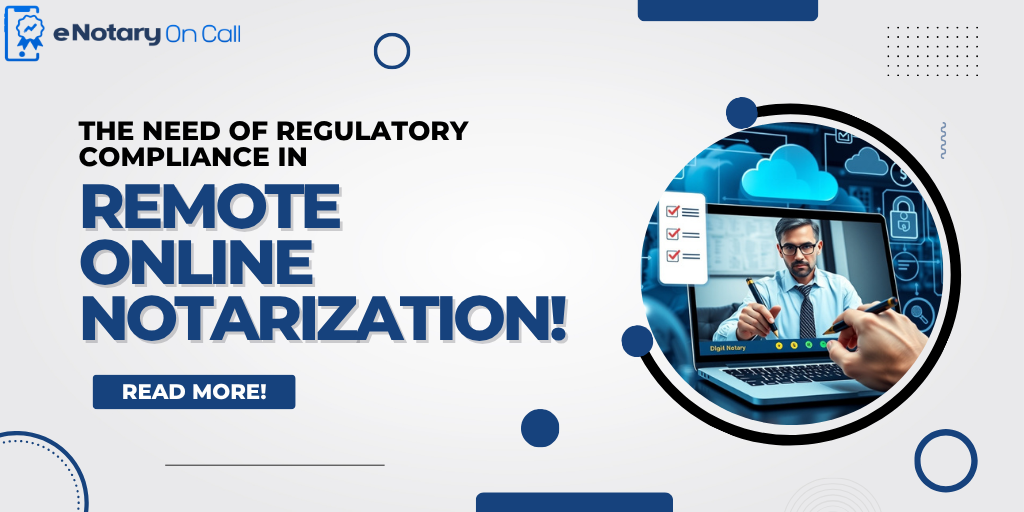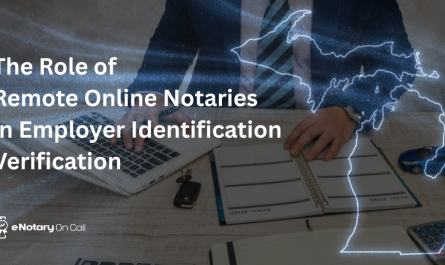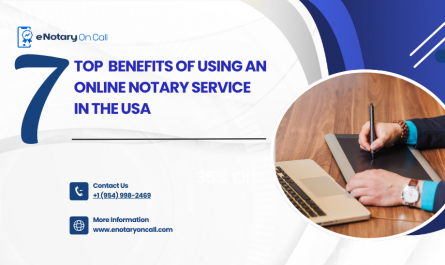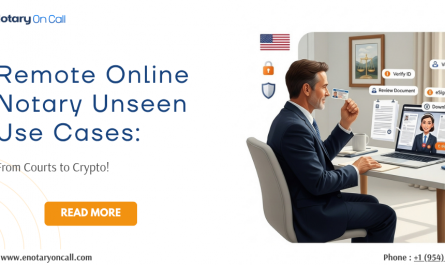Remote online notarization has quickly evolved from a convenient option to an essential service for professionals handling legal, financial, and medical documents. Whether you’re working with a Texas notary, a Florida public notary, or a notary public in Virginia, there’s one common thread: security and compliance must be top-tier.
Remote online notarization involves handling sensitive personal data full names, addresses, IDs, legal contracts, healthcare records, financial forms, and more. That means compliance with regulations like SOC 2, HIPAA, CCPA, and GDPR isn’t just important, it’s non-negotiable.
In this blog, we’ll break down why these regulations matter, how they protect your information, and why choosing a compliant best RON platform makes a massive difference in both security and peace of mind.
So, without any further ado, let’s get started!
1. Why Security & Compliance Matter in Remote Online Notarization
Online notary services handle sensitive data.
When you notarize documents, you’re entrusting confidential information to a digital platform. Whether it’s a real estate deed, power of attorney, or medical release form, this information needs to be safeguarded.
That’s where standards and compliances such as SOC 2, HIPAA, CCPA, and GDPR come into play.
They’re regulatory frameworks designed to make sure that your data is processed in a responsible, ethical, and secure manner.
2. SOC 2 Type II: Proving the best RON Platform You Trust Is Secure
SOC 2 Type II is a standard of auditing for data protection and system controls. It assesses the extent to which a remote online notarization platform safeguards customer data using five primary principles:
- Security
- Availability
- Processing integrity
- Confidentiality
- Privacy.
Being SOC 2 Type II compliant for a best remote online notarization platform such as eNotary On Call means:
- Periodic testing and audits
- Secure storage of notarized documents by encryption
- Strict internal access controls
- Secure identity verification systems
When choosing the best RON platform, always look for SOC 2 Type II compliance. It’s an indication that you’re using a platform that cares.
3. HIPAA: If It Involves Medical Documents, It’s Essential
If you’re in the healthcare industry, this one’s big.
HIPAA (Health Insurance Portability and Accountability Act) compliance ensures that all medical documents, including patient consents, treatment authorizations, and healthcare power of attorney forms, are handled in accordance with strict privacy and data protection rules.
When using an online notary for healthcare-related paperwork, HIPAA compliance ensures:
- Patient data is encrypted
- Only authorized individuals have access.
- A digital trail exists to verify when and how documents were handle.d
This makes a HIPAA-compliant remote online notarization services ideal for hospitals, clinics, and private practitioners who need to notarize documents remotely.
4. CCPA: Protecting California Residents’ Rights
The California Consumer Privacy Act (CCPA) protects the personal data of California residents and gives them more control over how their information is collected, stored, and shared.
For a California-based user working with a Florida notary service or Texas notary, CCPA compliance ensures:
- You’re informed about what data is collected.
- You can request access to or the deletion of your data.
- Your data won’t be sold without consent.
If you’re using a online notary solution, make sure it’s aligned with CCPA, especially if you’re dealing with real estate, estate planning, or legal documents in California.
Also Read – Remote Online Notarization: Today’s Necessity for Title Companies. Click Here!
5. GDPR: Essential for International Users & Clients
GDPR (General Data Protection Regulation) is the EU’s gold standard for privacy.
While it’s focused on European citizens, many U.S.-based online notary services extend GDPR protections to all users, especially those working with international clients.
GDPR-compliant remote online notarization platforms like eNotary On Call ensure:
- Your data is stored securely and not held longer than necessary
- You can access, correct, or delete your data.
- You’re notified in case of any breach or misuse.
This is especially valuable if your business handles cross-border contracts, global clients, or international legal documents.
Why All This Compliance Matters in Remote Online Notarization?
Every time you upload a file, share your ID, or attend a notarization session, you’re trusting that platform with your digital identity and private data. Choosing a compliant online notarization platform means choosing a provider that:
- Respects your privacy
- Handles your documents legally
- Secures your data like a vault
At eNotary On Call, we take compliance seriously. Our RON platform adheres to industry best practices and aligns with SOC 2 Type II, HIPAA, CCPA, and GDPR, providing our users with peace of mind.
Whether you need to notarize a document via a Florida notary or a Virginia notary public, or sign a document from anywhere in the world, our platform ensures security and reliability.
Also read – What is the Validity of a Notarized Document? Click Here!
Conclusion
When it comes to best online notarization services, speed and convenience are great, but security and compliance are what make it truly trustworthy.
Regulatory standards and compliances, such as SOC 2 Type II, HIPAA, CCPA, and GDPR, ensure that your personal and professional data remain protected throughout every step of the document notarization process.
If you’re a professional who values data security, privacy, and legal protection, choosing a compliant online notary service isn’t optional. It’s essential.
FAQs
1. What is SOC 2 Type II, and why does it matter in remote online notarization?
SOC 2 Type II is a framework that ensures platforms handle sensitive data securely. For remote online notary platforms, it means your info is well-protected.
2. Does HIPAA apply if I notarize medical documents online?
Yes! HIPAA compliance is crucial if you’re notarizing healthcare documents. It ensures that patient data is encrypted and handled in accordance with legal requirements.
3. Is GDPR only for users in Europe?
While GDPR is EU-focused, many U.S. platforms extend GDPR-style protections. If you have global clients, a GDPR-compliant notary online service adds a layer of trust.
4. How do I know if an online notary service is compliant?
Look for certifications, policy disclosures, and privacy notices. Trusted RON platforms, such as eNotary On Call, demonstrate their compliance with SOC 2, HIPAA, and other relevant standards.
5. Are online notarized documents as valid as in-person ones?
Absolutely. Remote online notarization performed by a licensed online notary is just as legally valid, especially when backed by strong compliance protocols.



